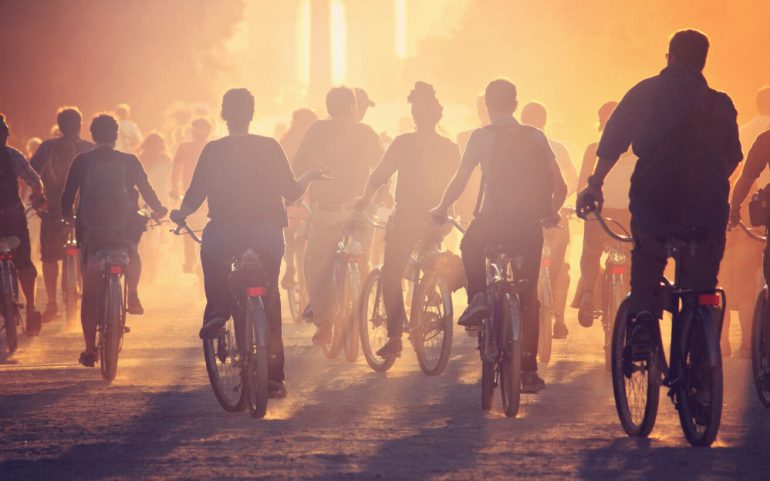Can modern cities become cyclist friendly in their daily commutes? Experience shows that by following the rules and the necessary education they can, and the benefits are then multiple. Both for cyclists, who provide daily exercise in movements that they would do anyway - without neglecting the pleasure of traveling on two wheels - and for cities, which provide a percentage of "clean" movements, a breath of fresh air urban environments.
Many times, however, the environment is hostile. There may not be the right infrastructure - and of course the necessary training - but it is often the driving behavior on the roads that puts the most "weak" in a difficult position. A phenomenon that is observed in many cities, worldwide, but in some rather more. As in Gaborone, Botswana, where cycling is accompanied by such a social stigma that the roads are described as "more dangerous than lions".
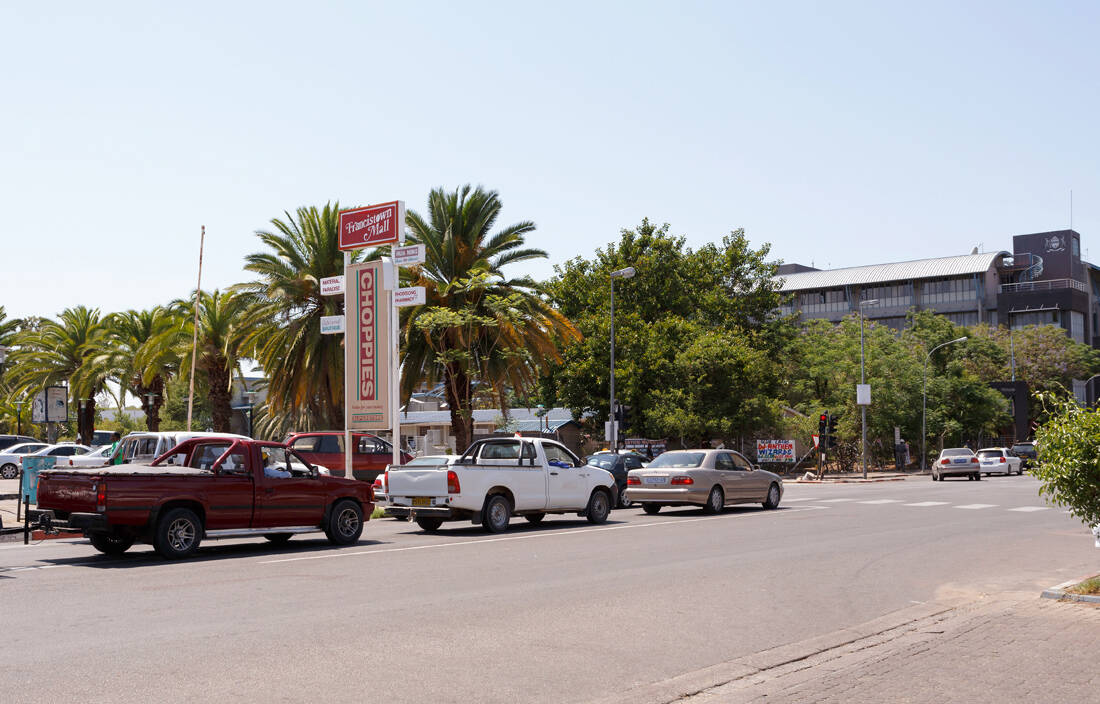
"I will hit you with this car." Mpaphi Ndubo remembers the driver of an open truck threatening him, while he was riding his bicycle safely on the opposite side of the road. But he was accustomed to this kind of intimidation. "You should not be on the road," the truck's occupants added, adding to the driver's threat.
It is an example of the many bad behaviors that cyclists face on the streets of Gabarone. "Because drivers pay tolls, they think the roads belong to them," Ndubo told the BBC. He deals professionally with bicycles and this is the only way he has moved to Gabarone for 22 years.
"Honestly, they have made the roads more dangerous than lions," he says.
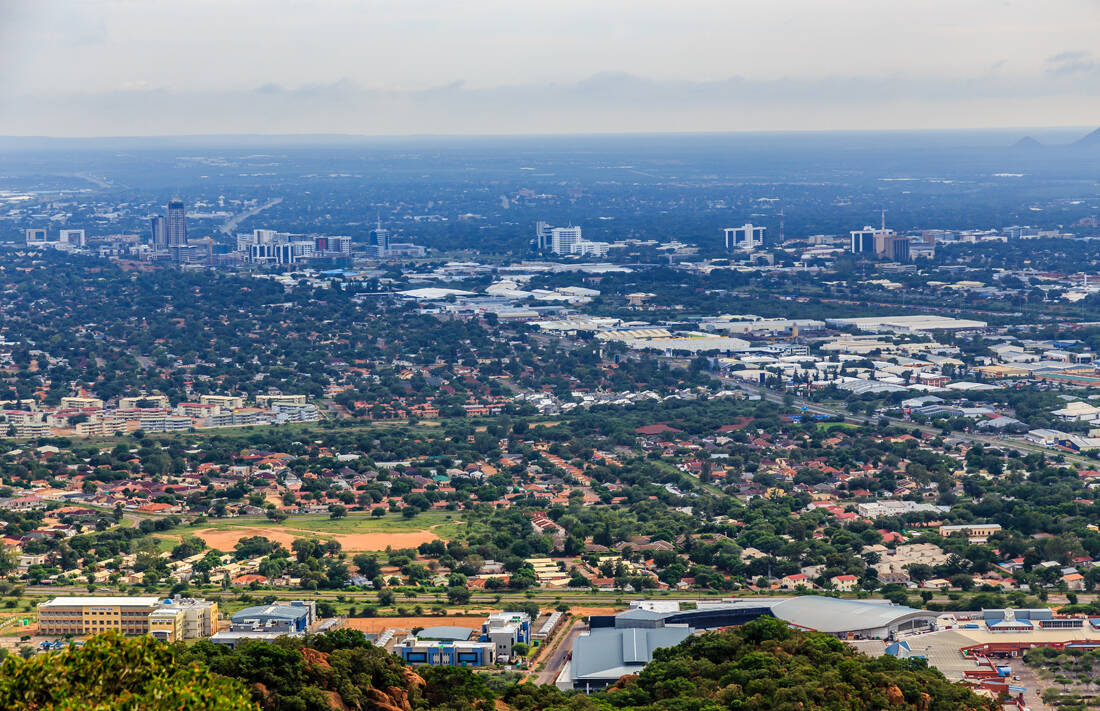
The hostile attitude of drivers towards cyclists stems from a deep-rooted belief that cycling is for the poor. In modern Botswana, drivers enjoy the respect of owning a car, as opposed to a bicycle, which is now considered obsolete.
However, this preference for motor vehicles brings with it a problem. The number of registered vehicles in Botswana has doubled in the last decade. Two-thirds of them are registered in Gabarone, where the majority are second-hand imports. Many vehicles imported into the region do not meet the emission limits in their countries of origin but are neither maintained nor inspected for gas emissions.
"The situation with air pollution in Gabarone is worrying. "The city is growing and urban migration means even more cars," said Wiston Modise, a researcher on air pollution at the University of Botswana. "Increased traffic can result in high levels of pollutants, such as carbon monoxide, nitrogen oxides, lead, which pose significant threats to human health, especially in the morning and afternoon. "People who move around the city can get respiratory illnesses."
The result is that the huge number of poorly maintained vehicles contributes significantly to air pollution in Gabarone, which is regularly ranked among the cities with the worst air quality in the world.
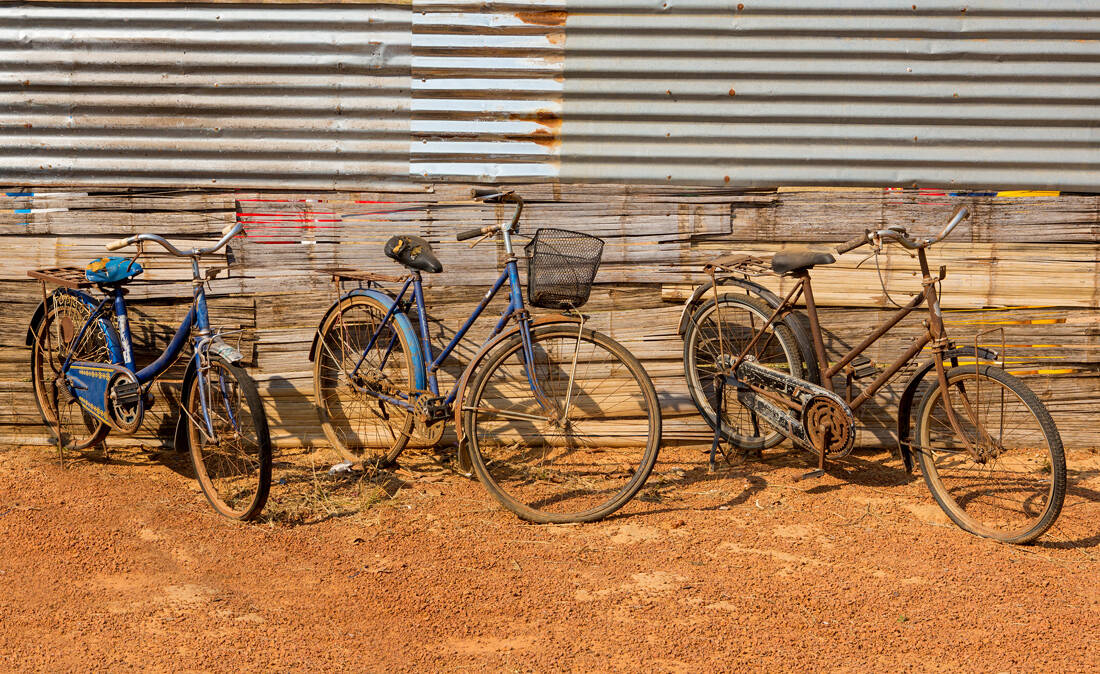
For Mpaphi Ndubo, the answer is simple: promote cycling in the city as an economically viable, flexible and "green" move. He wants Botswana to "fall in love" with bicycles again.
Ndubo grew up in the village of Masukwane, in northern Botswana, when still cycling enjoyed recognition and appreciation. "When I was little, my father bought a bicycle, which my mother took us to the clinic," he recalls. His mother carried the youngest child on her back and either Ndubo or his older brother sat on the grill.
In another village in northern Botswana, Sinete, the role of the bicycle in the country's past is honored in the form of the Dengenzela Bicycle Race.
In this annual competition, older women compete by carrying a bucket of water on their head, a fake baby on their back and 25 liters of water on the grill of their bike. Riding a bike with these "weights" mimics the way bicycles were once widely used in Botswana.
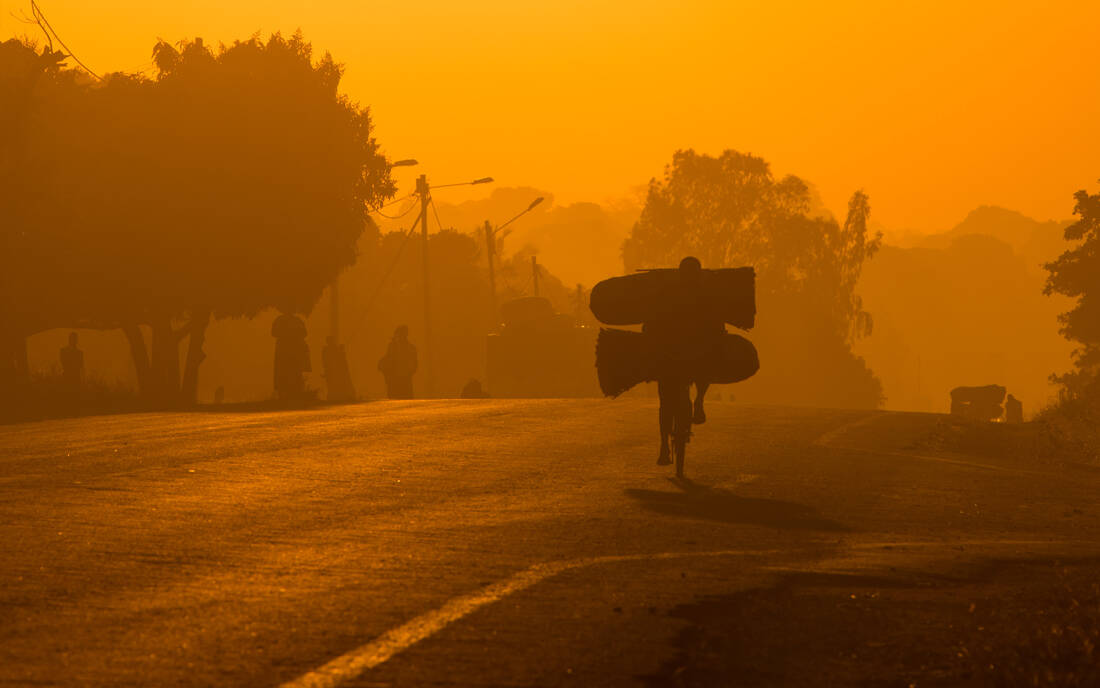
This "festive" approach to cycling in Sinete is not shared by the rest of Botswana. Starting his own business, AYS Cycling Solutions, Ndubo found out exactly how deep the mentality of the car status symbol in Gabarone has its roots.
"My idea was welcomed by the traders. "When I was about to make the delivery, they turned their backs on me," he describes. The delivery of bicycles for daily commuting was not considered an effective business plan, as bicycle shops were considered interesting only to those who cycled as a sport, not for daily commuting. So, to advance his plan, Ndubo became a trader himself. "People generally welcomed the products, but they did not buy them. I think my business was early. "Although cycling is far ahead of the developed world, we are still decades behind in development."
It was a heartbreaking start. Ndubo was found to have a large fleet of bicycles, but very few buyers were interested in it. But he did not give up. He founded an NGO, the Cycling Embassy Botswana. Through it educates the locals about the benefits of cycling in environment and health and offers learning lessons to help people ride a bike. He also became the "bicycle mayor" of Gabarone, with the support of BYCS, an Amsterdam-based organization that encourages cycling in various cities around the world.
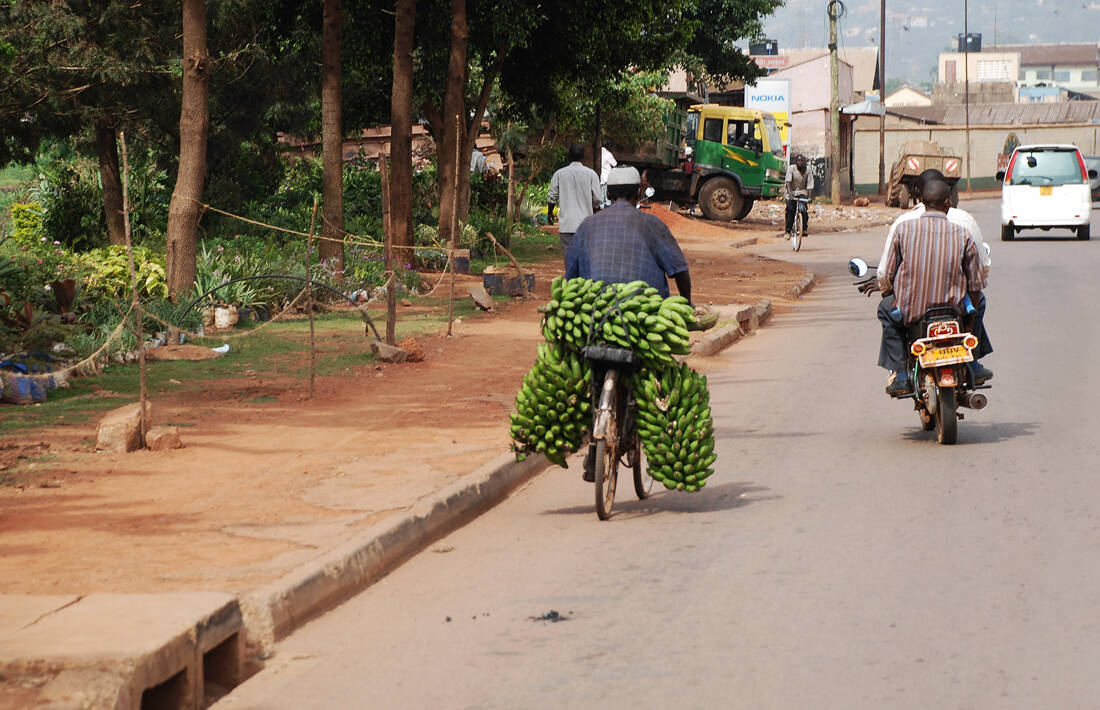
EU Ambassador to Botswana Jan Sadek is also fighting to promote cycling in Gabarone. "The debate on pollution and climate change he inspired me to promote cycling in Botswana as a way of moving "he explains, as well as he rides a bicycle to and from work, when he is in Botswana.
This is not difficult for Sadek, as he has been cycling since he was seven years old. When he was appointed to Botswana in 2018, he took with him his old bicycle, which he had driven to Sweden, the Czech Republic, Russia, Belarus, Sweden and Sudan.
"Many in Gabarone like to see me on the streets, but some would like me not to be there," he told the BBC. "Taxi drivers in particular are annoyed by my presence on the road." Of course, there are those who greet him enthusiastically, as they are very impressed that they see him moving with such a "indecent" means of transport in their eyes. According to him, he has inspired two more people, who now also travel regularly by bicycle, while others have also expressed interest.
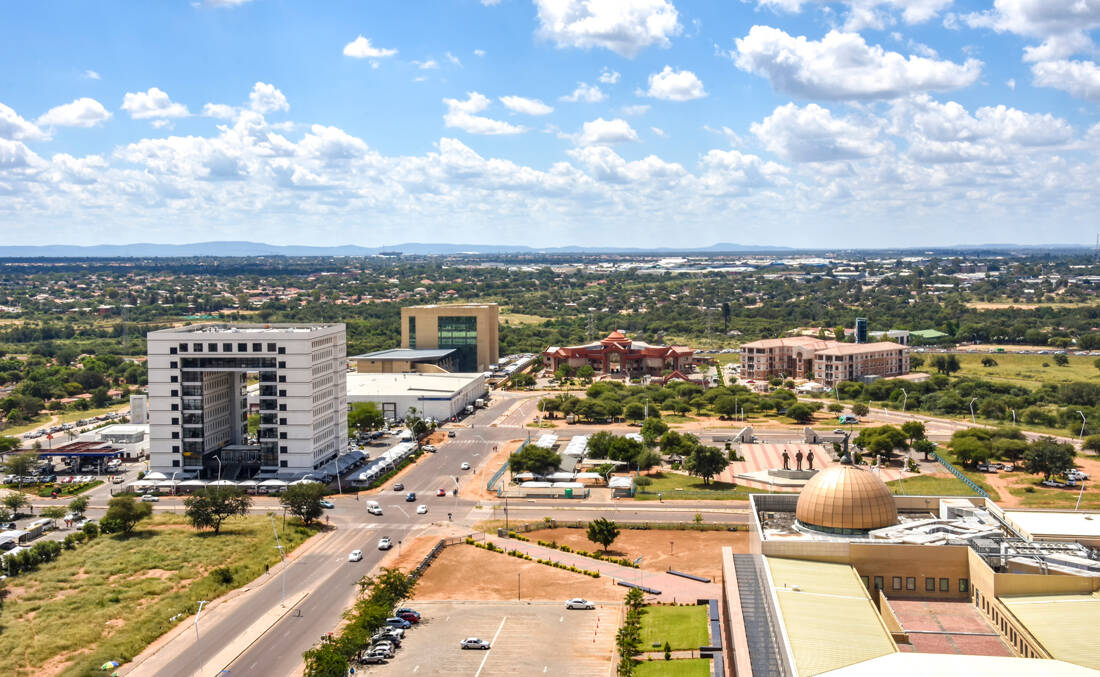
Slowly, the mentality in Gabarone seems to be changing. "Cycling is the perfect solution to air pollution in Gabarone," said Opha Pauline Dube, an environmentalist at the University of Botswana who lives in the city. "We need to reduce air pollution so that no one is exposed to levels higher than those set by the World Health Organization," he said.
Pollution levels in Botswana often exceed WHO guidelines for specific elements such as ozone, nitrogen dioxide and sulfur dioxide. Apart from vehicle exhaust, Botswana is experiencing a problem with atmospheric pollution from industry and home heating, as many still use traditional fuels for heating and cooking.
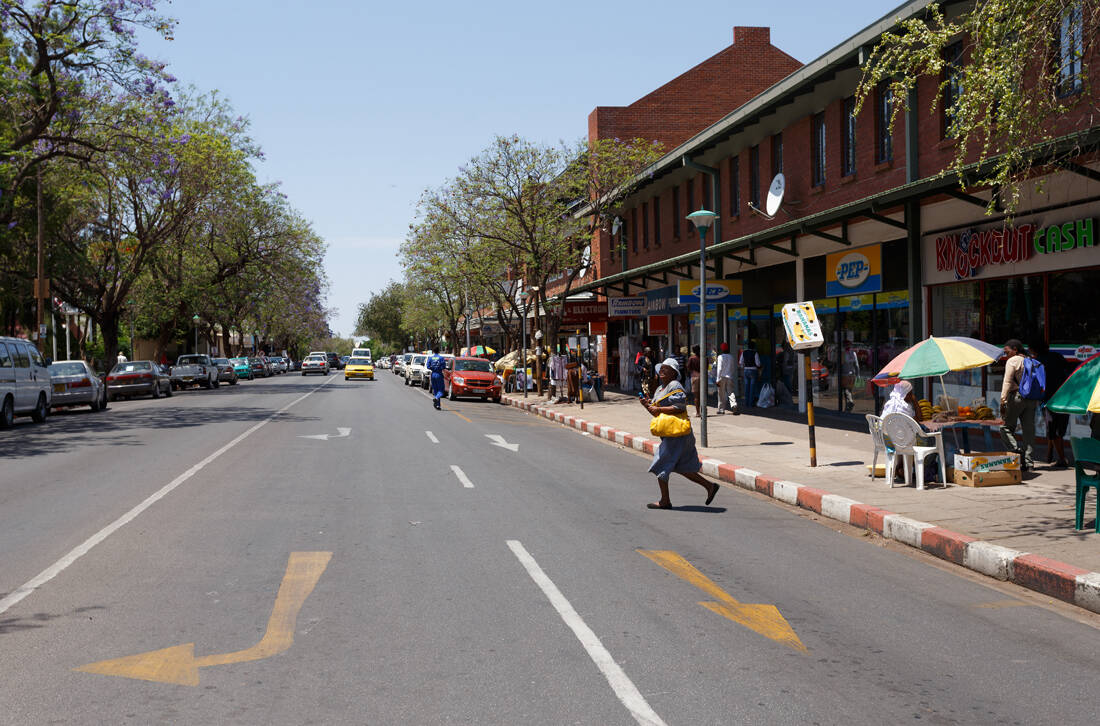
However, the biggest obstacle to the return of the bicycle as a popular means of transportation is the lack of infrastructure - including adequate bus lanes, work showers and changing rooms. Without them, citizens' perceptions of cycling will not change, says Dube. He recently received a bicycle as a gift, but has not yet learned to ride it. "Both my parents were cyclists, but they stopped using their bikes as soon as they got a car," he says. "So the bike disappeared from our house." Despite the disadvantages, she intends to overcome her fear of falls and learn to drive it.
The NGO Cycling Embassy Botswana is working to promote infrastructure and change that will make the city a safer environment for cyclists, contributing to the wider achievement of the UN Sustainable Development Goals.
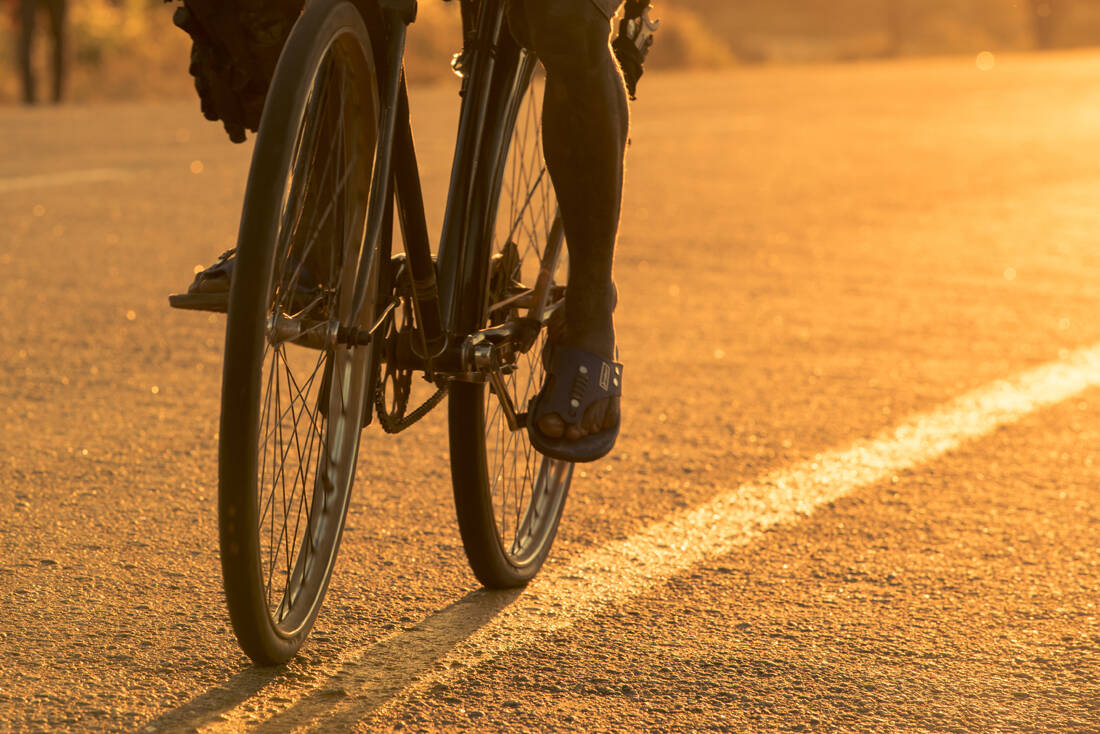
"When I started this business, I also wanted to deal with the problem of very high traffic in the city," explains Ndubo. "But as time went on, I also ended up fighting for climate change, because bicycles are ecological."
Although its clientele is still small, Ndubo is satisfied with its promising client list, which includes college students and government officials. His network of people who love cycling is also growing. In fact, it now has two electrical bicycles that people rent regularly.
Ndubo's goal is to gradually alleviate the social stigma of cycling in Gabarone. He hopes that one day the townspeople can see the bike with the same appreciation and respect that the residents of Sinete see the women pedaling to the finish line. And, rediscovering his love for cycling, his city enjoys even cleaner air.
